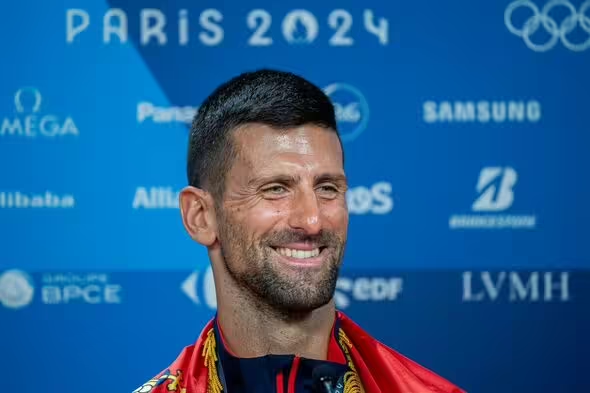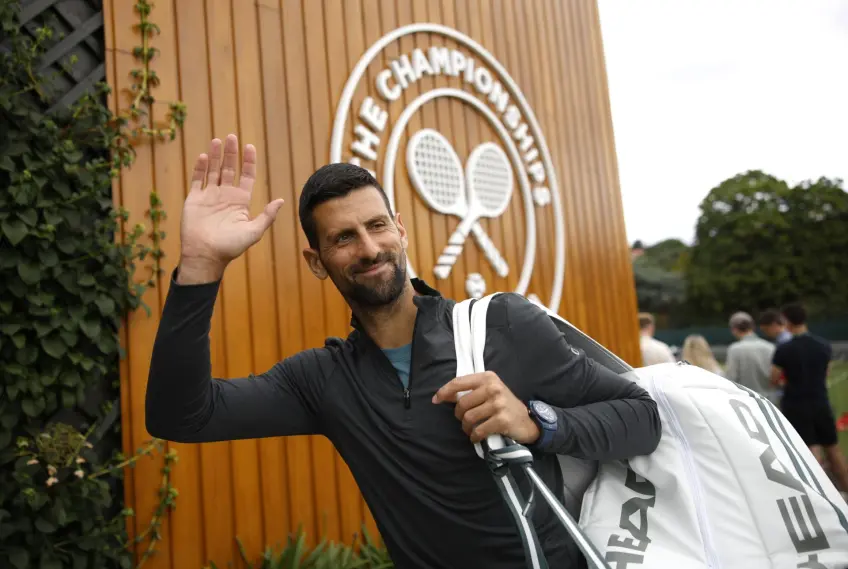In a shocking turn of events at the prestigious Wimbledon tournament, artificial intelligence (AI) bots have been blamed for a significant error involving Australian tennis star Alex de Minaur. The incident has sparked a debate over the increasing reliance on AI in sports management and the potential consequences of its misuse.
The Incident The controversy began when Alex de Minaur, currently one of Australia’s top-ranked tennis players, experienced a scheduling mishap that many are attributing to AI. De Minaur was initially slated to play a crucial match on Centre Court, a prime location that is reserved for high-profile matches and players.
However, in a surprising and confusing move, his match was reassigned to an outside court, far from the main action. The AI Misstep Wimbledon organisers have implemented AI systems to assist with various aspects of the tournament, including match scheduling, player analysis, and logistics. These systems are designed to optimize scheduling by considering factors such as player rankings, match importance, audience interest, and historical data.
However, in this case, it appears that the AI made a miscalculation. According to insiders, the AI system misinterpreted data related to de Minaur’s recent performances and popularity. It incorrectly assessed that his match did not warrant Centre Court placement, leading to the controversial decision to move him to a less prominent court. This error not only frustrated fans and disrupted de Minaur’s preparation but also raised questions about the reliability of AI in high-stakes environments.
Reactions from the Tennis Community The error has prompted strong reactions from the tennis community. Alex de Minaur expressed his disappointment, stating, It’s disheartening to see such an error occur at a tournament as prestigious as Wimbledon. Every player dreams of competing on Centre Court, and to be reassigned due to a technical glitch is a bitter pill to swallow.
Tennis Australia released a statement expressing concern over the incident. “We understand the increasing role of technology in sports, but this incident highlights the need for careful oversight and human intervention to ensure fair and accurate decisions.
Former players and commentators have also weighed in. John McEnroe, a legendary figure in tennis, remarked, While AI can enhance the game in many ways, this incident shows that we can’t rely solely on machines. Human judgment and experience are irreplaceable, especially in a sport with such rich traditions and high emotions. Wimbledon Organisers Respond Wimbledon organisers have acknowledged the error and have taken steps to address the issue.

A spokesperson for the All England Club, which runs Wimbledon, issued an apology to de Minaur and his team. We deeply regret the error that occurred with Alex de Minaur’s match scheduling. We are conducting a thorough review of our AI systems to understand what went wrong and to ensure it does not happen again.
The organisers have also announced immediate changes to their process. They plan to implement additional layers of human oversight for AI-generated decisions, particularly those that affect player experience and match scheduling. Our priority is to maintain the integrity of the tournament and to ensure that all players are treated fairly, the spokesperson added.
Broader Implications this incident has broader implications for the use of AI in sports and other industries. While AI has the potential to revolutionize operations, it also poses risks if not properly managed. The Wimbledon error serves as a reminder of the importance of combining technological advancements with human expertise.
Experts suggest that sports organizations should adopt a hybrid approach, where AI systems are used to provide data-driven insights and support decision-making, but final decisions are made by experienced professionals who can consider the nuances and complexities that machines might miss.

As AI continues to evolve and integrate into various facets of life, incidents like this highlight the need for ongoing evaluation and adaptation. Ensuring that AI complements rather than replaces human judgment will be key to harnessing its full potential while avoiding unintended consequences.



